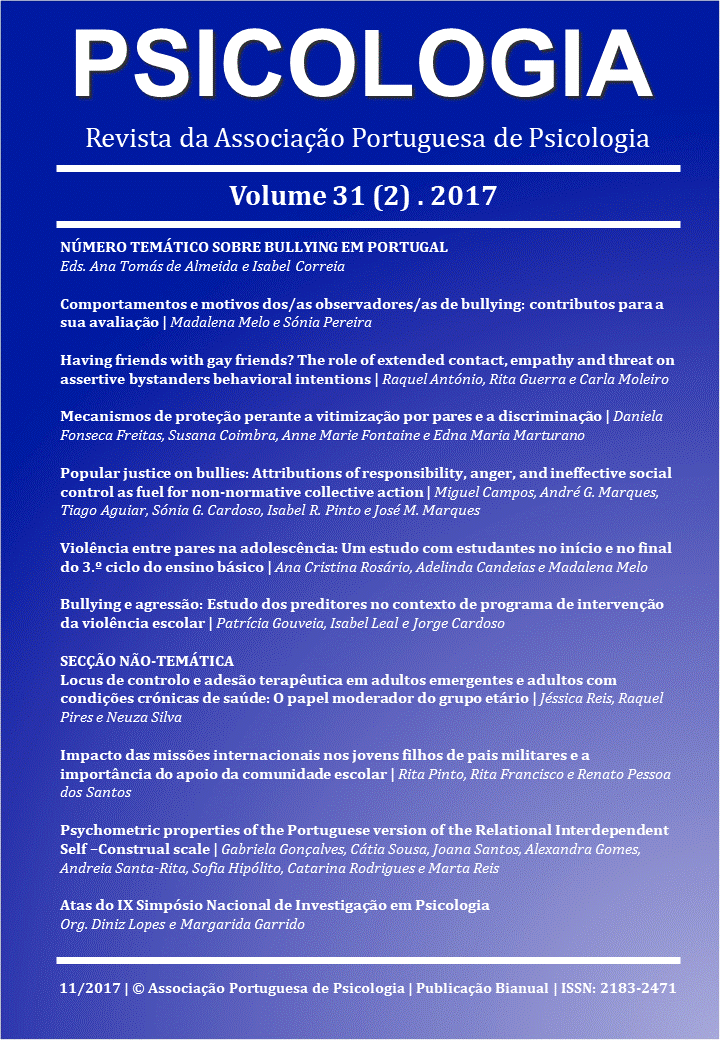Locus of control and adherence to treatments in adults and emerging adults with chronic health conditions: The moderating role of age-group
DOI:
https://doi.org/10.17575/rpsicol.v31i2.1223Abstract
This study was aimed at examining the associations between locus of control (LC) and adherence to treatments in individuals with chronic health conditions, as well as the moderating role of age-group on these associations. The sample included 61 emerging adults (18-25 years) and 60 adults (26-64 years) with a chronic condition and who were receiving treatments. Participants completed a clinical/sociodemographic datasheet and self-report questionnaires assessing LC and adherence to treatments. No significant differences were found in LC orientation or adherence to treatments between age-groups. A greater likelihood of having an external LC by chance was associated with lower adherence independently of age-group, while the negative link between internal LC and adherence and the positive link between external LC by powerful others and adherence were statistically significant only for emerging adults. These results suggest that LC may influence adherence to treatments and, therefore, should be considered as an intervention target in psychosocial interventions.


